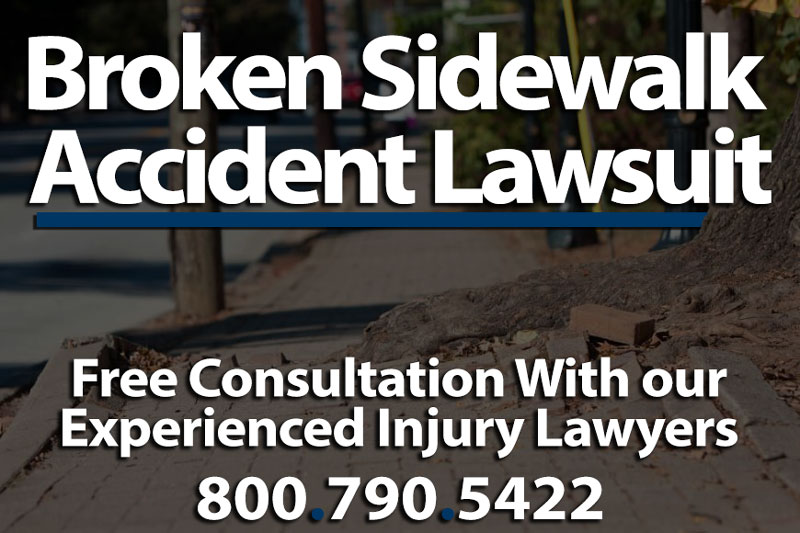 The Statute of Limitations is a statute that prescribes a period of time for certain kinds of legal action. In other words, it is a deadline to file a lawsuit. Why do we have statues of limitations? Courts do not want people sitting on their claims, as this could be dangerous for defendants. The purpose of a statute of limitations is to protect defendants. There are three reasons for the enactment of statutes of limitation:
The Statute of Limitations is a statute that prescribes a period of time for certain kinds of legal action. In other words, it is a deadline to file a lawsuit. Why do we have statues of limitations? Courts do not want people sitting on their claims, as this could be dangerous for defendants. The purpose of a statute of limitations is to protect defendants. There are three reasons for the enactment of statutes of limitation:
- A plaintiff with a valid cause of action should diligently pursue it.
- A defendant might have lost evidence to disprove any allegations against him or her.
- Legal action against a latent claim may be cruel instead of just.
The cause of action determines the statute of limitations. Statutes of limitations are intended to facilitate resolution of lawsuits within a certain amount of time. If you have any questions about the statute of limitations for your case, reach out to an experienced attorney at the top-rated Normandie Law Firm. Our expert lawyers with experience handling slip and fall injury claims will be available to answer your questions.
California Statute of Limitations for Personal Injury
As previously mentioned, the statute of limitations is determined by the cause of action. For example, a defamation claim will have a different statute of limitations than a personal injury claim. So, what is the statute of limitations for personal injury in California?
In general, personal injury claims against a private person or entity have a statute of limitation of two years from the date of your injury. Some injuries are not apparent immediately after the injury, however. In this case, the statute of limitations is two years from the date that you discovered the injury.
Personal injury claims against public entities, like cities, have a different statute of limitations. You only have six months from the date of the injury or the date of discovery to make a claim against a public entity. If you feel you may not have acted quickly enough, consult with a skilled attorney with expertise in sidewalk slip and fall injury lawsuits.
Exceptions to Statute of Limitations
There are a few exceptions to the statute of limitations. Below is a breakdown of these exceptions:
- Plaintiff was a minor at the time of injury — if the victim of a sidewalk injury was under the age of 18 at the time of the accident, the statute of limitations will not start counting until the victims 18th That is, if the victim was 14 years old when he or she was injured, the statute of limitations would end when two years after the victim’s 18th birthday, or when the victim turns 20.
- Defendant was out of state — if at any time during the initial two years of the statute of limitation the defendant was out of state, the statute of limitations will be considered to be paused. That is, if the defendant went out of state for a week every month for a total of 12 weeks, the statute of limitations would be extended by 12 weeks.
- Plaintiff is mentally incompetent — if the plaintiff was mentally incompetent at the time of the injury, the statute of limitations would be tolled the entire duration of mental incompetency. Mental incompetency can be in the form of mental illness or even a coma. If the plaintiff was in a coma at the time of an injury (injured by hospital staff, for example), the statute of limitations in paused until the plaintiff is out of the coma.
- Plaintiff or Defendant have died — if the plaintiff dies before the statute of limitations is over, the lawsuit can still be filed within the time frame. If the statute of limitations is almost over (less than six months remaining), the lawsuit can be filed within six months of the plaintiff’s death. If the defendant dies before the statute of limitations is over, the lawsuit must be filed within one year of his or her death, no exceptions.
- Plaintiff is in prison — if a plaintiff is in prison, the statute of limitation can be tolled until the plaintiff is released or for a period of two years, whichever comes sooner.
- Plaintiff is in the military — if a plaintiff is in the military, the statute of limitations is tolled during the period the plaintiff is serving in the military.
If you believe you may be eligible for an exception to the statute of limitations, talk with a qualified attorney who has experience in sidewalk slip and fall cases.
What if Time Runs Out?
If you have not filed a claim by the time that the statute of limitations runs out, you will no longer have the right to sue.
Sidewalk Personal Injuries
Injuries caused y defective sidewalks can be tricky to address. There are two different possible statutes of limitation for this specific type of personal injury. Before identifying the statute of limitations, you must identify the party responsible for your injuries—private or public entities. An accomplished lawyer experienced in slip and fall cases can give you more assistance in understanding the difference between the two.
- Private entities — if you were walking through a neighborhood and fell on a sidewalk that was not properly maintained, you may sue the property owner. The same applies to small businesses or large stores. Property owners and managers are responsible for keeping guests as safe as possible. This included keeping up with the sidewalk maintenance. If a property owner is aware of any damage to the sidewalk, he or she must promptly address the situation to prevent any guests or passersby from becoming injured.
- Public entities — if you were walking on a sidewalk in front of city-owned buildings—like city hall, government offices, and even airports, you may sue the city. The city is responsible for keeping their premises as safe as possible.
Quick History of Sidewalk Responsibility in Los Angeles
The city of Los Angeles provides a great example of how liability for sidewalk upkeep has constantly changed. In 1974, an ordinance made the city of Los Angeles responsible for all sidewalk repairs. The ordinance resulted because of a grant of federal funding. However, with the eventual disappearance of the federal funds, it became difficult for the city to keep up with all the expenses associated with sidewalk repair. By 2010, about 43% of the Los Angeles sidewalks were defective and in need of urgent repair. This alarming statistic prompted the city to push sidewalk repair responsibility back to the property owners. Today, sidewalk repairs are officially the responsibility of the property owners. The city offers may incentive programs like Safe Sidewalks LA to encourage property owners to fix their sidewalks. This program offers eligible property owners a rebate for some of the expenses incurred by sidewalk repair.
File Your Claim
If you injured yourself on a defective sidewalk, you must contact one of our top attorneys with experience in sidewalk slip and fall cases as soon as possible. Remember, you have a time deadline to file a lawsuit for tripping and falling on an uneven or damaged sidewalk. The California statute of limitations to file a lawsuit for injuries resulting from an uneven sidewalk can either be two years or six months, depending on the party responsible for your injuries.
The Normandie Law Firm
 Contact Normandie Law Firm; we are a personal injury law firm with expertise in sidewalk injuries. Our experienced lawyers are well-versed in handling cases just like yours.
Contact Normandie Law Firm; we are a personal injury law firm with expertise in sidewalk injuries. Our experienced lawyers are well-versed in handling cases just like yours.
Our law firm offers our clients free consultations. Our Los Angeles lawyers are available to review your case and answer any questions that you may be having. Such questions might include: How much time do I have to sue a homeowner for injuries from a defective sidewalk, or, how long do I have to sue for tripping and falling on a raised sidewalk on the street? As explained above, you have six months to file a lawsuit against the city and two years to file a lawsuit against a private property owner or manager. There are a few exceptions, but in general the statute of limitations in California is two years. We also offer free second opinions. If you already have a lawyer but you are displeased with his or her work, you can come for a free second opinion. We know that some lawyers are only interested in going through as many cases as possible; Normandie Law Firm does not work like that. We offer each of our clients a personalized treatment.
We know how stressful filing a lawsuit can be while you are dealing with treatment and recovery of your sidewalk injuries. Normandie Law Firm offers clients a Zero-Fee guarantee. You never have to worry about paying any upfront fees. Additionally, our personal injury law firm is strictly contingency-based. You will not have to pay us anything until our expert attorneys win your case. Contact us as soon as possible.











